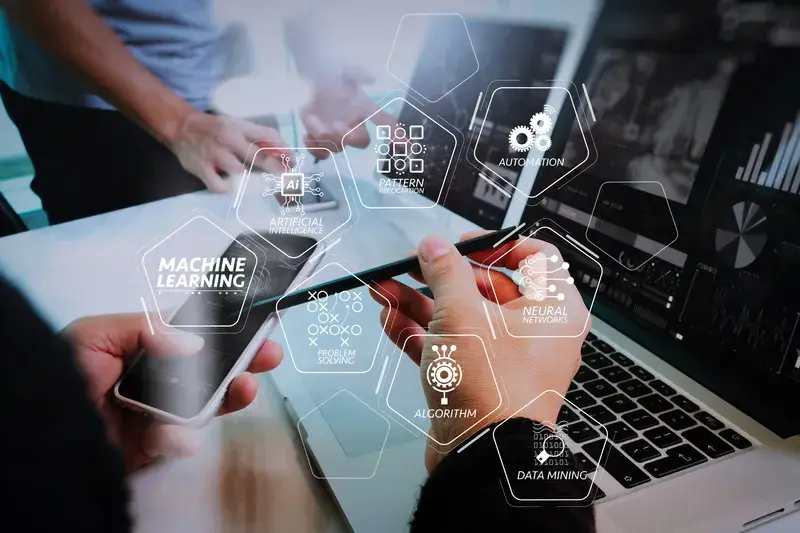Data in core applications has enormous value from your business processes to your services, products, customers, orders, materials, invoices, etc. Application data may also include streaming, video, media, and be enhanced with data from other applications, edge data, purchased data, external data. Data intelligence is the application of techniques to extract value from structured, unstructured, streaming, internal, external data, and information in order to drive data innovation. DI enables organizations to make data-driven decisions that can improve services, solve problems, and forecast future project success. By leveraging artificial intelligence and machine learning, data can be processed, analyzed, and transformed into actionable information. This approach allows businesses to gain a competitive edge by gaining a deeper understanding of their operations and customers.
- SAP Data Intelligence Cloud goes beyond classic batch ETL or real-time streaming.
- This practice has helped to identify costly bottlenecks and improve decision-making among business leaders.
- Telecom companies need to leverage location intelligence for similar considerations when planning their networks.
- Data intelligence is the process of presenting data in a way that’s meaningful to and interpretable by decision makers and stakeholders.
- As clever as it sounds, using data as an analogy for oilis not focusing where the true value lies—much like oil converted into gas,data intelligenceis the real fuel needed to accelerate past the competition and create value.
- You need to spend less time spinning up infrastructure with new OpEx and CapEx, and more time generating data intelligence.
Data analytics is the process of analyzing raw data to extract meaningful insights. This can be done through a variety of methods, such as statistical analysis or ML. It has self-service data preparation and management capabilities, as well as an intuitive drag-and-drop interface augmented with AI and ML capabilities. Zoho Analytics has a wide range of APIs that allow it to be readily expanded. MANA Community teamed with IBM Garage to build an AI platform to mine huge volumes of environmental data volumes from multiple digital channels and thousands of sources. Use a wide range of tools and techniques for preparing and extracting data—everything from databases and SQL to data mining to data integration methods.
What Does Data Intelligence Mean?
It can also be handy for making demographics-based decisions regarding retail operations and financial investments. It has developed AI for location intelligence on roads, not only photographing what roads look like but also identifying street signs or hazards that data intelligence system may affect traffic and driver safety. This can have implications for insurance firms, retail logistics, and urban planners. Like its name implies, CustomWeather sells a number of different datasets on meteorological patterns and imagery on current globe conditions.
The first recorded utilization of location intelligence techniques was in London, England during the mid-19th century. A physician named John Snow was able to use geospatial data to trace and minimize the impact of a cholera outbreak in one of the city’s districts. He did so by mapping out areas of the district where infections had occurred, and then comparing them against a map of the district’s water supply points. In doing so, he was able to pinpoint and disable the specific water pump where the outbreak had originated. Since then, LI has played an increasingly integral role in businesses, governments, and academia – and become much more technical.
Empowers data citizens to become data-driven
Overall, data intelligence plays a crucial role in allowing businesses to make data-driven decisions, improve performance and drive growth. Cloud Data Governance and Catalog – Understanding what data you have enables you to discover information across your global enterprise. Cloud Data Governance and Catalog services help you fuel your business with metadata-driven intelligence. You save valuable time and free resources by automating manual tasks with AI/ML. Cloud Data Quality – Data consumers can measure, validate and rely upon data using AI-driven insights. Cloud Data Quality services deliver trusted data for users throughout the enterprise to provide confidence to decisionmakers.
Organizations must first establish a governance foundation as their primary plan, then scale from there. It’s important for organizations to think about the technology and look towards total digital transformation within their organization; they must look at the big picture. A high-quality data intelligence platform won’t just help you store, access, and analyze your data; it will help you better understand its constant evolution. It’s good that you have it, sure, but ask yourself — how accessible is it really for your fellow data citizens?
Data integrity, data quality and IBM
These insights can be used to guide decision making and strategic planning. Machine learning is a subset of artificial intelligence that focuses on learning from what the data science comes up with. It requires data science tools to first clean, prepare and analyze unstructured big data. Machine learning can then “learn” from the data to create insights that improve performance or inform predictions. The best data-driven organizations have learned how to build the best data refineries! And that means increasing data intelligence for knowledge workers through self-service data analytics, rather than being stuck, mired in the tar of unusable data lakes.
As data storage and analysis continue to migrate from on-premises to the cloud, the market… Learn more about designing the right data architecture to elevate your data quality here. Data that isn’t properly secured is at an increased risk of a data breach or being lost to a natural disaster or other unplanned event.
Data Intelligence Solutions
We know that AI has the potential to be enormously beneficial to humanity. It could improve strategic foresight and forecasting, democratize access to knowledge, turbocharge scientific progress, and increase capacity for processing vast amounts of information. To develop the most advanced AIs (aka “models”), researchers need to train them with vast datasets (see “Training Data”). Eventually though, as AI produces more https://www.globalcloudteam.com/ and more content, that material will start to feed back into training data. Knowledge graphs, also known as semantic networks, are a way of thinking about knowledge as a network, so that machines can understand how concepts are related. For example, at the most basic level, a cat would be linked more strongly to a dog than a bald eagle in such a graph because they’re both domesticated mammals with fur and four legs.

Few products have some features in common but the selection of tool entirely depends on our requirement. There can be fragmented data, a short supply of data science skills, and tools, practices, and frameworks to choose between that have rigid IT standards for training and deployment. It can also be challenging to operationalize ML models that have unclear accuracy and predictions that are difficult to audit. Data from various sources, collected in different forms, require data entry and compilation.
See how customers are succeeding with SAP Data Intelligence Cloud
In other words, data security is the means while data integrity is the goal. Data recoverability — in the event of a breach, attack, power outage or service interruption — falls under the realm of data security. When combined with data analytics and visualization tools, likeApache Spark, delving into the world of data mining has never been easier and extracting relevant insights has never been faster. Advances withinartificial intelligenceonly continue to expedite adoption across industries. With its high-performance software-as-a-service and hybrid cloud architecture, organizations of all sizes may take advantage of unrivaled analytics performance and versatility.

They can develop answers that can help patients take proactive steps with their health. Data intelligence can help doctors identify future health problems and work with their patients to proactively recommend healthy lifestyle choices. And drug companies can prioritize research and development for the next generation of medicines. A comprehensive, cloud-based platform can ensure enterprise security and scale up to meet specific standards for reliability, privacy, and compliance.
Subscribe to the Data Insider Newsletter
Tableau is a data analytics software that is widely used in business intelligence. It helps users to see and understand data with its built-in visual best practices. Tableau is also known for its scalability and efficiency, which makes it a popular choice for businesses of all sizes. As part of Salesforce, Tableau has Einstein Discovery AI, making it an even more powerful tool for data analytics. When they’re hosted in the cloud, teams don’t need to install, configure, maintain, or update them locally.